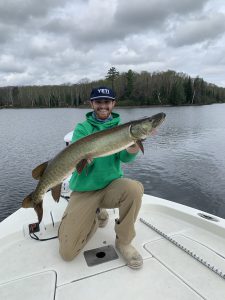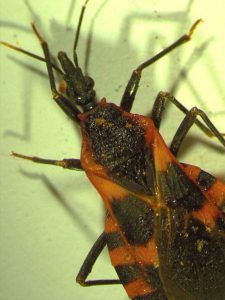Carson Torhorst studies Trypanosoma cruzi (T. cruzi), a parasite found in Triatomine bugs (“kissing bugs”) under the guidance of Dr. Samantha Wisely.

Importance of T. cruzi research
T. cruzi is a public health concern as it causes Chagas disease. Chagas disease is estimated to infect 8 million people across Mexico, South, and Central America. There are more than 300,000 people in the United States living with Chagas disease (CDC). The parasite infects humans, but can also infect other mammals, which may act as reservoir hosts. Studies have begun to uncover the range of reservoir hosts here in the US. However, we know little about reservoir hosts in Florida. Understanding native reservoir hosts in Florida will aid future studies in ways to reduce the risk of T. cruzi spread.
Understanding the relationship
Carson aims to increase the understanding of how T. cruzi interacts with wildlife in Florida. Carson’s research looks at how T. cruzi spreads within infected reservoir hosts between wild environments and human homes. This study will allow the

scientific community better grasp how reservoir hosts infected with T. cruzi may be different between the two environment types. Specifically, he focuses on understanding whether reservoir hosts consume the bugs, possibly hinting at an oral-transmission pathway.
At the same time, Carson explores a unique interaction between opossums and T. cruzi. Previous studies show that T. cruzi is able to reproduce and sustain infection within the anal glands of opossums (genus Didelphis). Past studies have also shown that the T. cruzi found within the opossum’s anal glands is able to infect other mammal species. Because the Virginia opossum is widespread in the US, this may have important public and veterinary health impacts. Results from this study will likely clue us into how opossums may present as a public health risk.
For information about kissing bugs and Chagas Disease, please visit the Florida Department of Health page or the UF Health page on the subject.
 0
0
